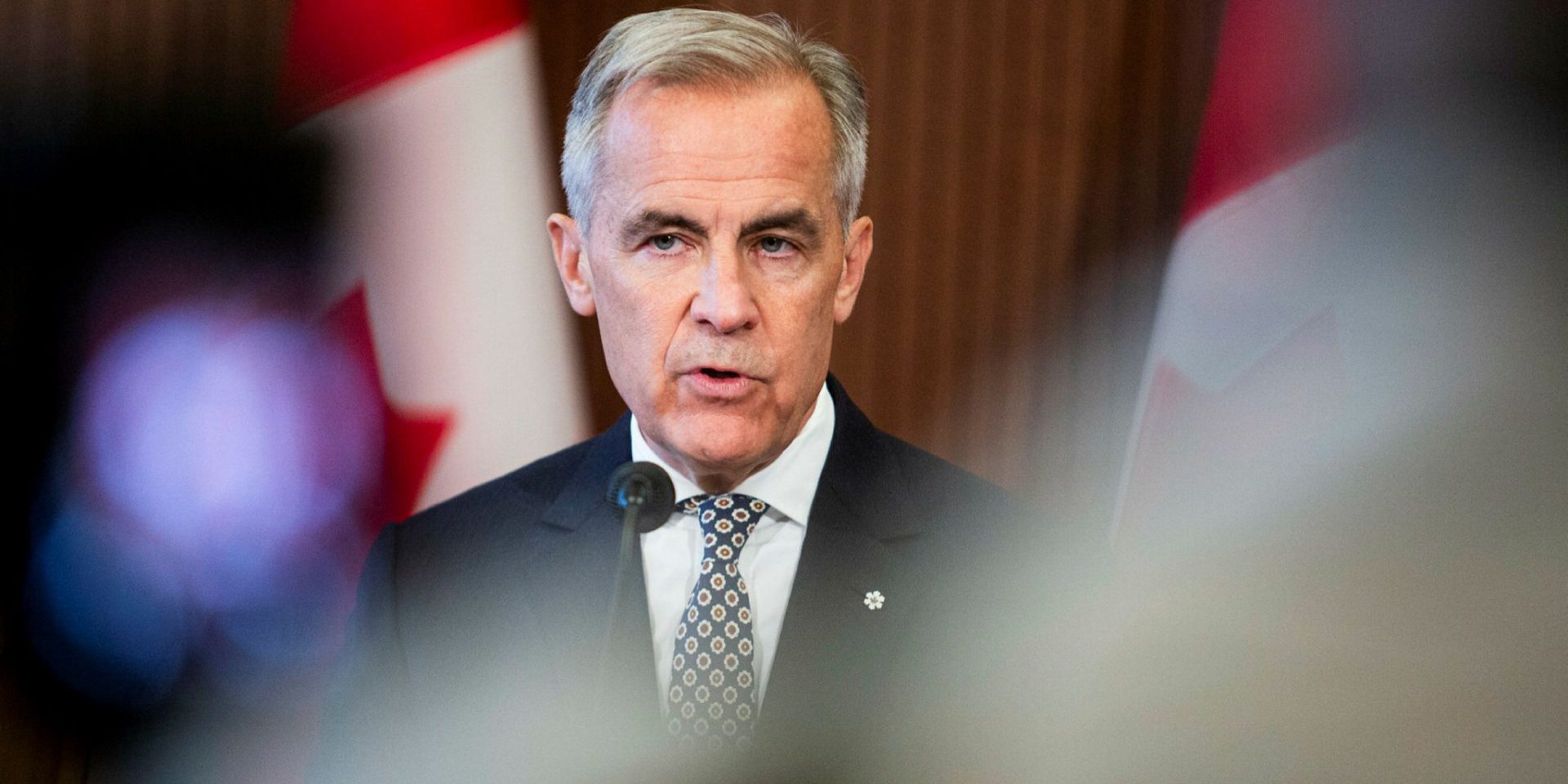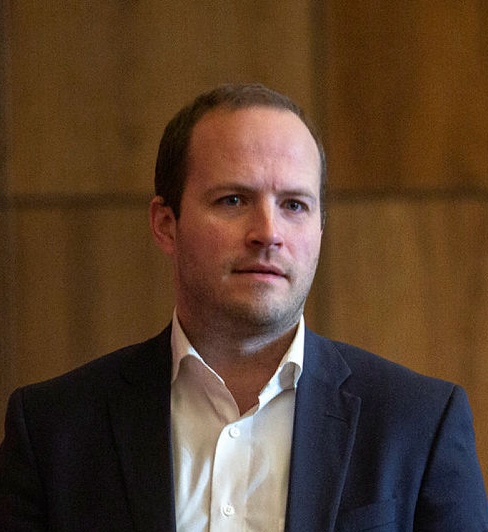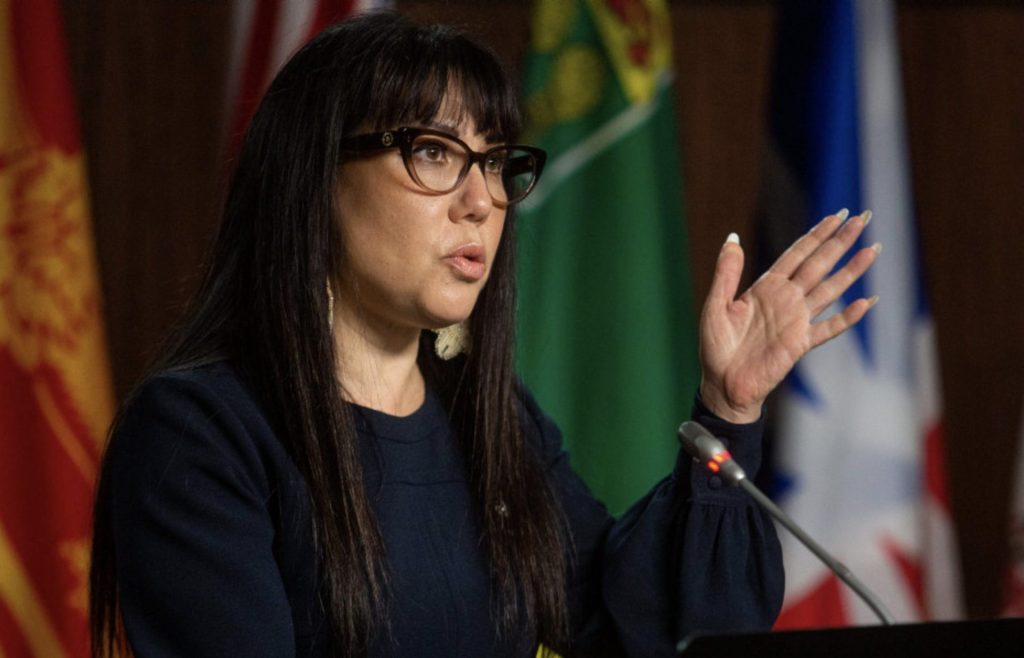Carney’s sweeping, omnibus bills called both undemocratic, and meeting the moment

Three omnibus bills flying through both the House and Senate at a breakneck pace face criticism for being unconstitutional, undemocratic, and bound to face legal challenges, but some argue Prime Minister Mark Carney is meeting the moment and delivering on what voters asked for, amid time constraints.
Bill C-2, or the Strong Borders Act, tightens immigration rules, limits who can pursue refugee claims, and expands the type of information that police can demand from “service providers” without a warrant. Bill C-4, the Making Life More Affordable for Canadians Act, includes an income tax reduction and eliminates the GST for new homes under $1-million, while also officially scraping the consumer carbon tax. It also exempts political parties from federal and provincial privacy laws. Bill C-5, or the One Canadian Economy Act, is aimed at removing interprovincial trade barriers and establish free trade inside Canada, but also gives cabinet broad powers to approve and fast-track infrastructure and energy projects if they are deemed to be in the “national interest.”
Duff Conacher, co-founder of Democracy Watch, said bills that address more than one law should have been prohibited a long time ago by Parliament, and said he and some other organizations plan on challenging some of the bills in court.
In the case of Bill C-5, the One Canadian Economy Act, Conacher said the legislation essentially gives cabinet the ability to suspend any law that would apply to “nation-building” projects.

“Our view is that it’s unconstitutional,” he said. “Laws are passed by Parliament and have to be amended through parliamentary review and approval process.” Cabinet cannot be granted that power, even by Parliament, he said.
David McLaughlin, ex-chief of staff to then-prime minister Brian Mulroney and a former chief of staff to Stephen Harper-era finance minister Jim Flaherty, said omnibus-style legislation became “a bit of a trend” in the Harper and Justin Trudeau governments in order to get policy measures through Parliament expeditiously.
“The real test for Mr. Carney will be what he does with his budget,” he said in an interview with The Hill Times. The budget has become the largest vehicle for omnibus legislation, which is a “radical departure” from traditional parliamentary behaviour, he said, with financial measures being coupled with a range of policy measures and directions by the government.
McLaughlin said it’s early days to compare Carney’s parliamentary approach to Harper’s, but noted Trudeau also used omnibus legislation.
Two scarce commodities rule the day in Ottawa, McLaughlin said: the prime minister’s time, and the parliamentary calendar, so “any way you can shave the clock in Parliament, to get things through, get things done, any government is going to look for.”
Scrutiny, review and debate are Parliament’s role, he said, “but we also know there’s a lot of performative stuff behind it, just for clicks and social media and getting attention. So respect for Parliament has to go both ways.”
The “bundling” of bills, as McLaughlin calls it, may have created some friction within the Liberal caucus, but it’s “entirely legitimate and a good use of democracy, a good use of Parliament,” he said. “[Carney’s] clearly captured the moment that Canadians want stuff done now, moving faster.”
In response to criticism that the review of some of these bills are being rushed, he said parliamentarians could have opted to expand this sitting into the summer, instead of fitting everything into just a few weeks.
“Parliament has to grow up, if you will, mature in a way to allow these things to be considered and scrutinized but still allow the government to proceed with its agenda,” McLaughlin said. “It is up to Parliament to act in a democratic way, to allow for consideration of the government’s agenda, which is its obligation, and scrutiny of the government’s measures.”
Issues with the legislation are “legitimate,” he said, “and that’s where Parliament has a role and obligation to highlight these things, both for citizens, and to help the government avoid these sand traps and other problems.”
Some criticism of the legislation, particularly of Bill C-5, has come from within the Liberal caucus. In the House on June 16, Liberal MP Nathaniel Erskine-Smith (Beaches—East York, Ont.) said, “Under the guise of responding to the threat posed by Trump, we are sacrificing other important values. We aren’t thinking about unintended consequences. And we are actively undermining our parliamentary democracy.”

Calling it “Bill 5 déjà vu” (a reference to Ontario Premier Doug Ford’s law that enacts “special economic zones” to give the government more power to build projects), he said the federal government is “proposing to shut down democratic debate, curtail committee scrutiny, and ram the bill through the legislature.
“It would all make Harper blush. Liberals would rightly scream if a federal Conservative government attempted the same,” Erskine-Smith said.
He noted Parliament is expected to rise for the summer, and not sit between June 20 and Sept. 15.
“We are rushing legislation through Parliament under the auspices of an urgent threat, but we aren’t willing to put Parliament to work for an additional week to get things right?” he said.
“We don’t make laws in this place for one government, one prime minister. The laws we pass are binding on all future governments. Even a time-limited law like this one, establishes a precedent. If passed as it is, Bill C-5 is a dangerous precedent that will enable Conservatives to gut environmental protections when they are in power next,” said Erskine-Smith.
Bloc Québécois MP Patrick Bonin (Repentigny, Que.) said in French that the government’s operating at full speed “is silencing parliamentarians to prevent us from even asking questions or hearing from witnesses.
“It is moving full speed ahead with a system that even Stephen Harper would have been embarrassed to introduce, a system that slavishly caves to the demands of the oil and gas sector to speed up approvals and remove barriers and environmental protections,” he said in the House on June 16.
“The government is being utterly undemocratic. Despite what the government says, it is not true that the bill states that consensus will be required for these projects to move forward and for them to be recognized as projects of national interest,” said Bonin.

Jordan Paquet, vice-president of Bluesky Strategy Group, said he’s not surprised Carney “hit the ground running” with legislation to tighten the border and to make big projects happen, which are two items from the Conservative platforms.
“They know these ideas are popular, have a lot of stakeholder support, and so they said, ‘No need to reinvent the wheel, we might as well put these things to work,’” he told The Hill Times. Plus, the minority Liberals know the Conservatives will support these measures “because these are things that they’ve talked about in the past as well.”
As for criticism that the legislation has been rushed, Paquet also said it’s been necessary to meet the moment and ensure the Canadian economy is ready for what comes next, he said, and not “drag our heels, as has happened over the past 10 years.”
In the case of Bill C-5, “nation-building” projects are still subject to approval processes, he said, but “instead of 10 different reviews, there’s one.” The bill says the government must consult Indigenous people for these fast-tracked projects, but it also allows cabinet to overrule other legislation.
Michael Geist, a law professor at the University of Ottawa and Canada Research Chair in internet and e-commerce law, said bills C-2 and C-4 contain privacy concerns that, “if subjected to some real sunlight would be quite unpopular with a lot of Canadians.”
Bill C-2, or the Strong Borders Act, includes provisions that give law enforcement warrantless access to a person’s subscription data, and the government has taken an “unprecedentedly broad approach,” he said, expanding beyond telecom providers, which is what previous lawful access legislation focused on.
“Physicians, hospitals, education institutions, libraries. Quite literally, your dry cleaner is covered by this,” he said in an interview with The Hill Times. “The provisions are very broad, and there are low standards for police to have to meet to be able to use these demands,” he said, adding it runs counter to jurisprudence that takes “a much stronger position on privacy, and the reasonable expectations of privacy that Canadians have with this kind of information.”
Meanwhile, under Bill C-4, political parties will not be subject to serious privacy legislation at all, Geist said, noting Canada’s privacy commissioner has already ruled that federal privacy laws don’t apply to federal political parties.

“They’re trying now to make it the case that provincial privacy laws won’t apply,” Geist said. “And so what is left is really nothing more than a privacy policy that discloses what you think, and the barest of potential penalties to meet scant obligations. It’s so far from what the government says they expect the private sector to do, when it comes to privacy, it’s quite astonishing.”
When asked about the government’s motives with bundling privacy legislation in with other measures, Geist noted Carney has previously talked about crises as being an opportunity.
“It feels as if someone in government thought this was an opportunity to leverage the current crisis,” he said. “The fact that we saw both of these bills in the first week of substantive legislation, there’s obvious efforts to fast-track it.”
Adding privacy addendums into Bill C-2, the Strong Borders Act, and Bill C-4, the Making Life More Affordable for Canadians Act, affordability measures bill, “feels like it is designed to kind of bury these provisions, in a way that most people, the government hopes, won’t notice,” Geist said. “And even if they do, it becomes, of course, very difficult for opposition parties and others to oppose because it’s presented as a package deal with other provisions that they might agree with.”
Geist says he expects the Strong Borders Act to face legal challenges due to privacy breaches, and noted there’s currently a case before the courts in British Columbia that deals with the privacy issues raised in Bill C-4.

“Part of the reason the government is moving ahead quickly is because of the case in B.C. [is] dealing with the same issues,” he said. “So in some ways, these issues are already in the courts.”
NDP MP Leah Gazan (Winnipeg Centre, Man.) is the party’s critic on Bill C-5. She told The Hill Times that the Liberals have failed constitutional obligation, particularly with Indigenous peoples and civil society groups.
“The Conservatives have supported the Liberals pushing this bill through in spite of the fact that it hasn’t had proper study, it hasn’t had proper public engagement,” she said.
“We have a choice. The NDP has been clear we’re not opposed to building our economy, but we are clear that in order to do so, it must be done in a way that’s constitutionally sound, in a way that protects workers, in a way that protects basic democratic principles, and that has not been heard in this case.”
mglass@hilltimes.com
The Hill Times






 LICENSING
LICENSING PODCAST
PODCAST ALERTS
ALERTS













